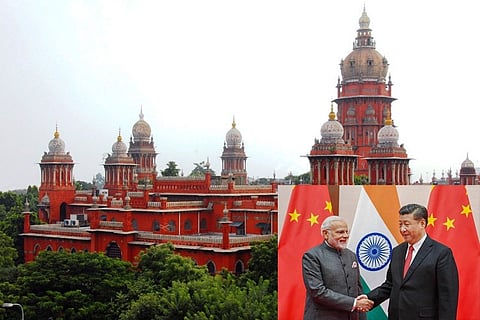

The Madras High Court, on Thursday, said that the Tamil Nadu government can place banners to welcome Prime Minister Narendra Modi ahead of his meeting with the Chinese President in the state. The court said that the banners must be placed in a manner that doesn’t cause hindrance to the public.
This comes after the state government had filed an affidavit in the court stating that it would be placing welcome banners along with the Ministry of External Affairs to welcome Indian Prime Minister Narendra Modi and Chinese President Xi Jinping for their bilateral summit at Mamallapuram (Mahabalipuram) between October 11 and 13.
As it had stated in its affidavit, the state government reiterated that it merely sought to inform the court and not seek permission for the installation. As per Section 278 of the Chennai City Municipal Corporation Act, 1919, the state government's undertaking affidavit argued that ‘issuance of license/permission for erection of welcome banners in the places belonging to the Government is not required.’ (sic)
The court, however, reiterated that per its earlier verdicts, political parties are not allowed to place banners and flex boards.
Less than a month earlier, a 23-year-old Chennai techie was killed by an illegal hoarding put up an AIADMK functionary for a family function. Following this, social activist ‘Traffic’ Ramaswamy filed a petition over the state government’s failure to check illegal hoardings despite a court order banning them. A division bench of Justices N Seshasayee and M Sathyanarayanan was hearing the petition. On October 1, the state government filed an affidavit in the same matter.
Welcome banners will be put up from October 9 to 13, for a period of five days. Welcome banners will be put up en route from Airport to Mahabalipuram (five locations in Chennai city, four locations in Mahabalipuram and seven locations in OMR and ECR) through the Directorate of Information and Public Relations.
The court, however, cautioned that the installation of banners should not affect citizens and that there should be no danger to life. Traffic flow must also not be affected, the judges reminded, asking the government to follow its earlier guidelines on the matter.